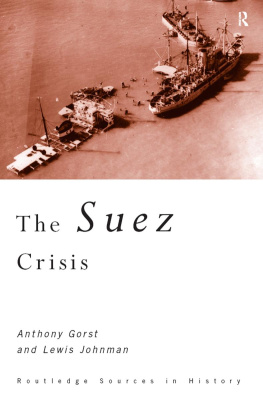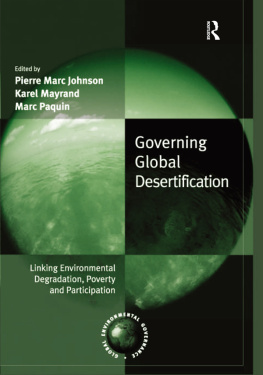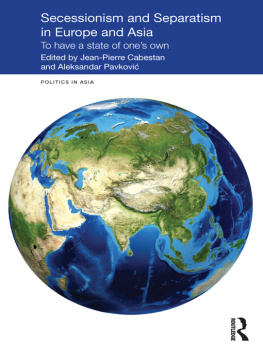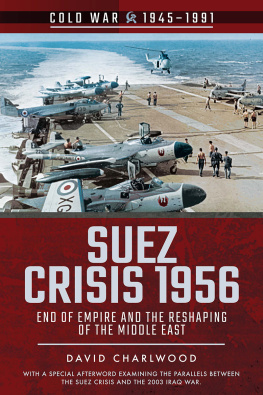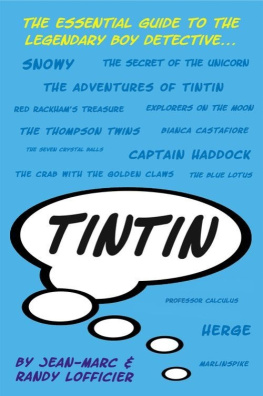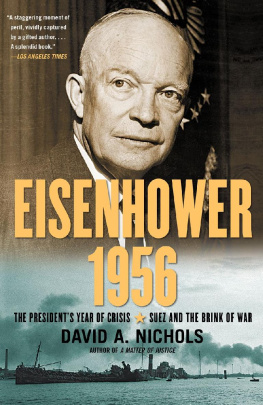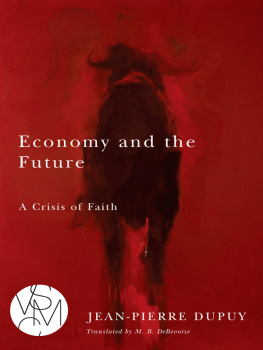
This edition is published by PICKLE PARTNERS PUBLISHINGwww.picklepartnerspublishing.com
To join our mailing list for new titles or for issues with our books picklepublishing@gmail.com
Or on Facebook
Text originally published in 2004 under the same title.
Pickle Partners Publishing 2014, all rights reserved. No part of this publication may be reproduced, stored in a retrieval system or transmitted by any means, electrical, mechanical or otherwise without the written permission of the copyright holder.
Publishers Note
Although in most cases we have retained the Authors original spelling and grammar to authentically reproduce the work of the Author and the original intent of such material, some additional notes and clarifications have been added for the modern readers benefit.
We have also made every effort to include all maps and illustrations of the original edition the limitations of formatting do not allow of including larger maps, we will upload as many of these maps as possible.
THE 1956 SUEZ CRISIS AND THE UNITED NATIONS
BY
MAJ JEAN-MARC PIERRE
TABLE OF CONTENTS
Contents
TABLE OF CONTENTS
ABSTRACT
THE 1956 SUEZ CRISIS AND THE UNITED NATIONS, by MAJ Jean-Marc Pierre.
The 1956 Suez Crisis is the first example of a preemptive strike after World War II. The episode provides lessons about the lengths to which nations will go to secure their interests and the limits of the United Nations influence. How the UN uses its power is the point of contention. In 1956, Great Britain, France, and Israel believed the organization would protect their security interests through the unbiased maintenance of international law. Yet, as common in the Cold War, UN action was hampered. A war began and ended with a cease-fire in fifty-five hours. Three militarily superior armies won their tactical fights but were strategically defeated. Most notably, the influence of global authority shifted to the superpowers. Through all this, the UN changed its mission and purpose. The primary question therefore is did the UN resolve the 1956 Suez Crisis? Resolution had to include a status quo ante bellum, the return to the existing system before the war, or the recognition of a new international Regime. The UNs ability to resolve such crises directly affects its legitimacy in the international community.
ACKNOWLEDGMENTS
This thesis is dedicated to my wife, Jean Gwendolyn, and to all those who serve to keep the United States of America a free, safe, and prosperous nation.
ILLUSTRATIONS
Figure 1. Egypt, 1956
Figure 2. Venn Diagram
Figure 3. Time-Series Graph
Figure 4. The Integrated Elasticity Model
Figure 5. The Complex Elasticity Model
Figure 6. The Interoceanic Routes Used by the British and the French to Travel from Their Homeports to Their Colonies or Interests When Using the Cape of Good Hope and the Suez Canal
Figure 7. 1955 World Oil Production
Figure 8. Middle East Oil Shipments West of Suez
Figure 9. 1955 European Oil Imports from the Middle East
Figure 10. 1955 Oil Imports Using the Suez Canal
Figure 11. Elasticity during the 1956 Suez Nationalization
Figure 12. Analysis of the UN Actions during the 1956 Crisis
Figure 13. American and Soviet Reaction to Operation Musketeer
TABLES
Table 1. 1955 Oil Production
Table 2. 1955 Oil Shipments to West
Table 3. 1955 European Oil Imports from the Middle East
CHAPTER 1 INTRODUCTION
General Introduction
For centuries, international law recognized that nations need not suffer an attack before they can lawfully take action to defend themselves against forces that present an imminent danger of attack. Legal scholars and international jurists often conditioned the legitimacy of preemption on the existence of an imminent threat -most often a visible mobilization of armies, navies, and air forces preparing to attack. (Bush 2002, 15)
In an interview at the end of 2003, United Nations (UN) Secretary-General Kofi Annan reflected on the challenges facing the UN following Operation Iraqi Freedom (OIF). The United States (US)-led war to overthrow Iraqi dictator Saddam Hussein ended over twelve years of diplomacy since the 1991 Persian Gulf War. Kofi Annan assumed that the circumstances by which the OIF coalition went to war, the American doctrine of preemptive war, put the UN at its most significant crossroad since 1945.
By 2003, Iraq had violated seventeen UN resolutions, had expelled UN weapons inspectors, and had funded suicide bombings in Israel. The administration of President George W. Bush, fresh from its victory in Afghanistan and armed with the 2002 National Security Strategy, was determined to enforce the UN resolutions. The UNs response to the looming war, mused Annan, crippled its effectiveness in dealing with other longstanding disputes and possibly its credibility as an organization that worked by consensus: Those who are opposed to war could not understand that we could not stop the war and those who were for the war were upset that we did not support it. He further demurred that preemptive war was never mentioned in the [UN] Charter and [was] something the organization had never dealt with before (Annan interviewed by Shawn, December 2003).
Contrary to Mr. Annans assertions, the UN had precedents of unsanctioned preemptive strikes from which to refer. For example, preemption was the casus belli (reason for war) in the Arab-Israeli War (1967), Bosnia (1995), and Kosovo (1999). The first preemptive strike in the postmodern era, however, was in the Suez Crisis in 1956 when a British, French, and Israeli coalition launched an attack into Egypt to depose Colonel Gamal Abdel Nasser. Nasser, like Saddam Hussein of Iraq, was an authoritarian dictator who seized power through a coup dtat. Both men sponsored cross border terrorism against Israel. Both men routinely violated UN resolutions. Both faced strikes when opposing parties no longer found utility in diplomacy. The 1956 war and OIF are reminders that political disputes can digress into open conflict. As Carl Von Clausewitz famously said in his treatise, On War, War is nothing but the continuation of policy with other means (Clausewitz 1976, 69).
It will be event in this study that when the Tripartite Coalition (just like the OIF Coalition) could not achieve their political ends through the diplomatic channels, open warfare became their only recourse. Unlike the failed Operation Musketeer, OIF succeeded in overthrowing the Iraqi regime. Annan believed that OIF and the very doctrine of preemption could be seen as a precedent that other governments [could] use (Annan interviewed by Shawn, December 2003). Four contemporary examples to consider are: Pakistan or India could use preemption as a justification to wage war over Kashmir; the two Koreas could explode to preempt an invasion across the demilitarized zone; Israel could use preemption to attack its many regional antagonists Syria, Iran, or the Palestinian Liberation Organization; and Russia could attack the former Soviet republics.
In light of the implications of preemption, if the UN does not acknowledge its role as the main interlocutor in the world community, preemption could lead to the unilateral use of force in trouble spots around the world, such as Kashmir, Abkhazia, Nagorno-Karabakh, the Koreas, and the former Soviet Union. The United Nations should therefore review the circumstances of the 1956 Suez Crisis, to understand how genuine divisions amongst its members impair effectiveness.




